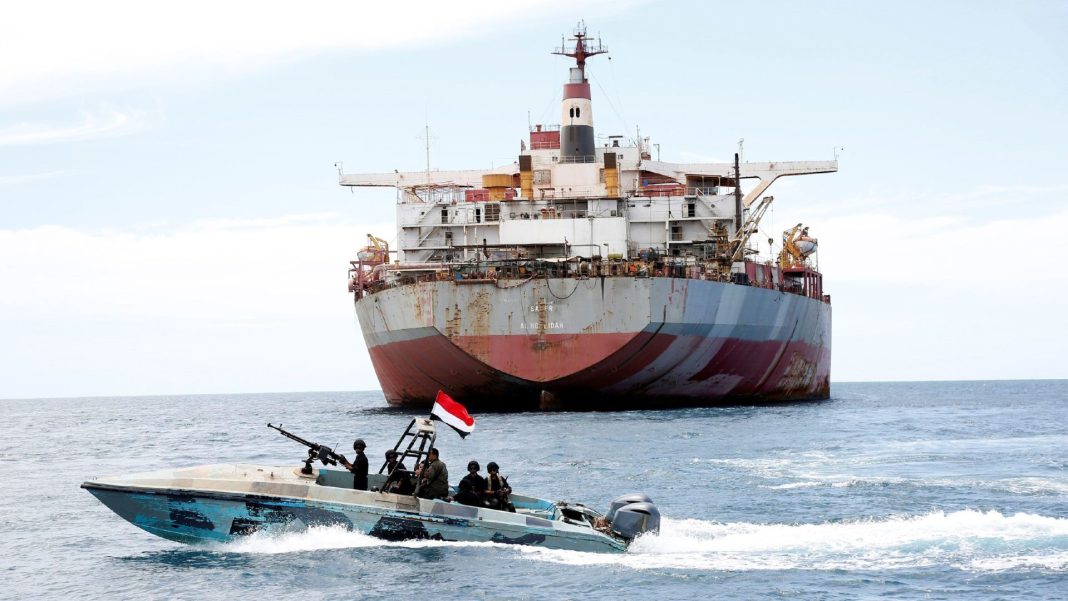Eleven members of the council voted on Wednesday for the measure calling on the Yemeni Houthis to “immediately cease all attacks, which impede global commerce and navigational rights and freedoms as well as regional peace”.
Four members – Algeria, China, Mozambique and Russia – abstained. None voted against. As permanent members of the council, China and Russia have vetoes but chose not to use them.
“The world’s message to the Houthis today was clear: Cease these attacks immediately,” Linda Thomas-Greenfield, the United States’ ambassador to the United Nations, said in a statement after the vote.
“With this resolution, the Council has lived up to its responsibility to help ensure the free flow of lawful transit through the Red Sea continues unimpeded,” Thomas-Greenfield added.
The US sponsored the resolution alongside Japan.
The US says the Iran-backed Houthis have carried out 26 attacks on commercial ships in the Red Sea since commandeering the Galaxy Leader and its 25-strong multinational crew on November 19.
The Houthis claim they are targeting Israeli-linked or Israel-bound vessels in protest against the ongoing war on Gaza.
The key provision of the resolution noted the right of United Nations member states, in accordance with international law, “to defend their vessels from attack, including those that undermine navigational rights and freedoms”.
The provision amounts to an implicit endorsement of Operation Prosperity Guardian, a US-led multinational naval task force, including the United Kingdom and Norway, that was established in December to defend commercial shipping from Houthi attacks.
Norway has one of the world’s largest merchant shipping fleets, and its vessels have been targeted by the Houthis.
The US accuses Iran of providing critical support for the Houthi attacks, including advanced missiles and drones, in violation of UN Security Council resolutions. Tehran denies the allegations.
Mohammed Ali al-Houthi, the head of Yemen’s Houthi supreme revolutionary committee in Yemen, dismissed the UN resolution as a “political game” and claimed Washington was the one violating international law.
He called on the UN Security Council to release the people in Gaza from what he called “the largest prison in which collective criminal punishment is practiced”.
He argued that what “the Yemeni armed forces are doing comes within the framework of legitimate defense” and that the United States, Britain, and Israel are the ones violating international law in their response to Gaza.
“The decision that was adopted regarding the security of navigation in the Red Sea is a political game, and the United States is the one violating international law,” he said of the UNSC vote.
